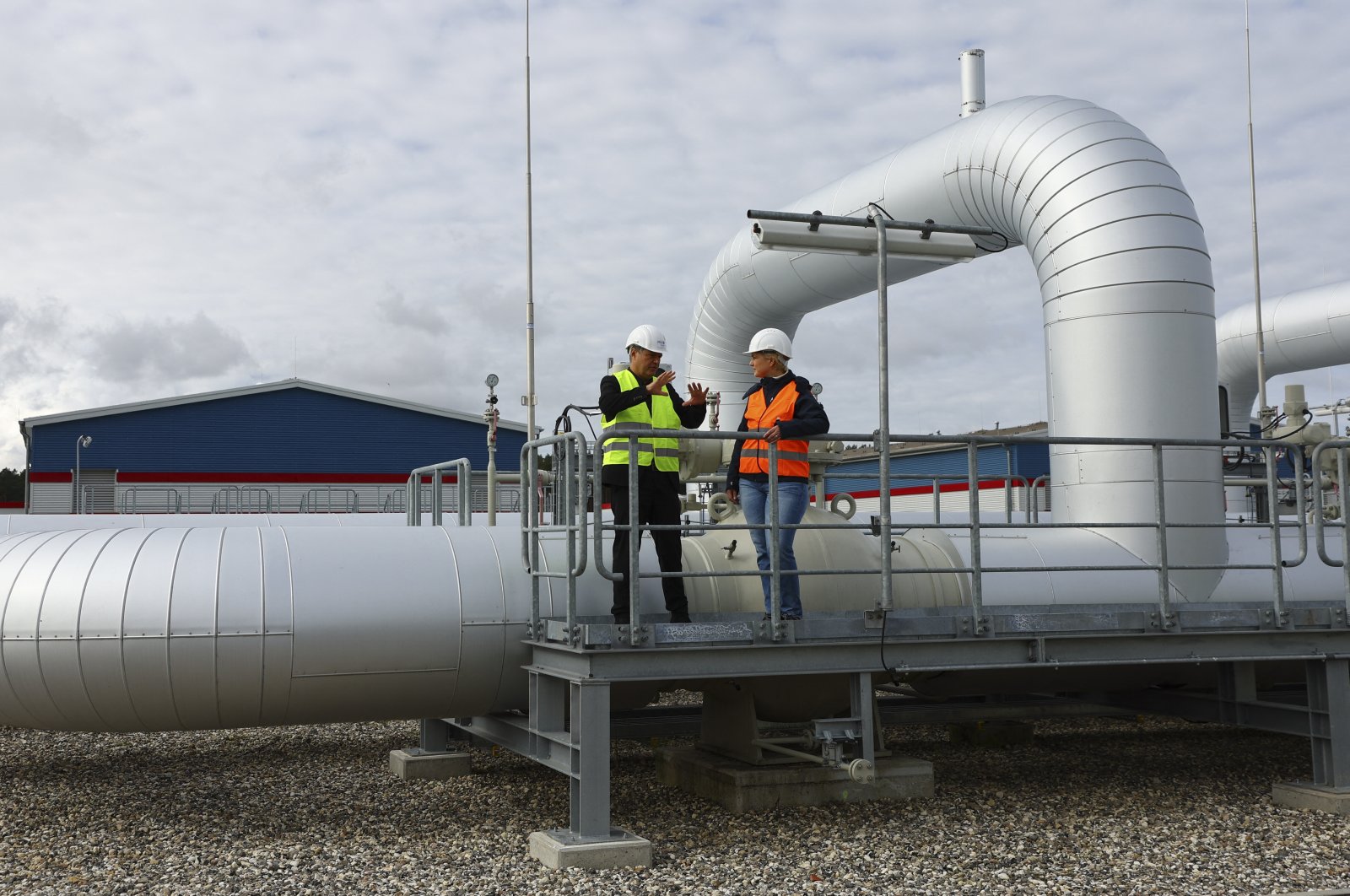European governments on Monday outlined new measures to deal with potential energy shortages this winter, scrambling to upgrade energy grids to share power as Russian gas flows still flow at sharply reduced rates amid the Ukraine war.
Germany said it expects to sign liquefied natural gas (LNG) deals in the United Arab Emirates. With the major Nord Stream 1 pipeline to Russia closed, it plans to build new LNG terminals to transport gas, while European partners Spain and France were also working on contingency plans.
“If everything goes well, the savings in Germany are high and we are a bit lucky with the weather, we have … a chance to get through the winter well,” said Economics Minister Robert Habeck after visiting a future LNG terminal in northern Germany Lubmin.
Habeck said Germany would not let big gas importers like VNG go bankrupt, while a spokesman for the economy ministry said “focused” talks were underway over aid with ailing importer Uniper.
Russia, which supplied about 40% of the European Union’s gas before invading Ukraine in February, said it closed the pipeline because Western sanctions were hampering operations. European politicians see this as a pretext and accuse Moscow of using energy as a weapon.
German buyers on Monday briefly reserved capacity to source Russian gas via the Nord Stream 1 pipeline, which was once one of Europe’s most important gas supply routes, for the first time since the line was shut down three weeks ago. But they soon dropped the applications.
It wasn’t immediately clear why buyers had made requests for capacity, although Russia had given no indication since the line shut down that it would resume anytime soon.
Russian gas flows to Europe via Ukraine have continued, although greatly reduced.
But the sharp drop in Russian fuel exports in retaliation for Western sanctions over Moscow’s invasion of Ukraine has prompted governments to scramble to find energy resources but also warned of recession fears that power outages could occur.
Germany’s economy is already shrinking and is likely to deteriorate over the winter months as gas consumption is cut or rationed, the country’s central bank said on Monday.
power outages?
In France, natural gas exports to Germany could start around October 10, the head of France’s energy regulator CRE said after an announcement by President Emmanuel Macron that the two EU neighbors would help each other with electricity and gas flows.
“Gas only flowed from Germany to France (until now), so we didn’t have the technical tools to reverse the flows and we didn’t even have a method to regulate the prices,” CRE chief Emmanuelle Wargon told Radio France info.
As French energy group EDF scrambles to repair corrosion-damaged nuclear reactors, “extraordinary” measures this winter could include localized power outages if the winter is cold and EDF’s plans are delayed, Wargon said.
“But there will be no household gas shutdowns. Never,” she said.
Spanish Industry Minister Reyes Maroto said that obliging energy-intensive companies to close during peak consumption periods is an option on the table this winter if needed.
Companies would be compensated financially, she said in an interview with Spanish news agency Europa Press, adding that there was no need to impose such closures now.
And Finns have been warned by national grid operator Fingrid to be prepared for power outages.
Amid the disruptions being caused across the continent, Finnish electricity trader Karhu Voima Oy announced it had filed for bankruptcy due to a sharp rise in electricity prices.
‘Back in time’
Meanwhile, Ukraine accused Russian forces of shelling near the Pivdennoukrainsk nuclear power plant in southern Ukraine’s Mykolaiv region.
Since Russia drove its forces out of Kharkiv, it has repeatedly fired on power plants, water infrastructure and other civilian targets, in what Ukraine says is retaliation for defeats on the ground. Moscow denies targeting civilians.
Europe’s gas storage facilities are now 85.6% full, with stocks in Germany at nearly 90%, data from Gas Infrastructure Europe showed.
“Stockpiles are set to continue to build, supported by the completion of planned maintenance and increasing Norwegian flows from this week,” analysts at Energi Danmark said in a morning note.
Meanwhile, Europe’s thermal coal imports in 2022 could be the highest in at least four years, analysts said.
European imports of thermal coal could rise to about 100 million tonnes this year, the highest since 2017, according to Noble Resources International Pte Ltd, while commodity pricing agency Argus expects shipments to hit a four-year high.
“Europe is going back in time,” said Rodrigo Echeverri, head of research at Noble, at a conference.
Oil prices fell more than 1% on Monday, weighed down by expectations of weaker global demand and US dollar strength ahead of a potentially large rate hike, although supply concerns limited the decline.
Oil has also come under pressure from forecasts of weaker demand, such as last week’s International Energy Agency forecast that the fourth quarter would show no demand growth.




